Jazz is alive and thriving in Wales. Nigel Jarrett visits Abergavenny’s Wall2Wall Jazz Festival 2019 and finds it’s put on three days’ growth.
Festival jazz in Wales would welcome any kind of phoenix, ash-provenanced or from any other remnant, to rise in place of the international festival that for many years was Brecon. There’s still a Brecon Jazz Festival run gamely by the local jazz club, but they won’t be flying in Wynton Marsalis for a one-off date any time soon. Nor does the ever-growing Wall2Wall Jazz festival, organised annually by the Black Mountain Jazz Club in Abergavenny, have similarly grandiose ambitions. How could it or Brecon possibly have, unless a mammoth benefactor comes along?
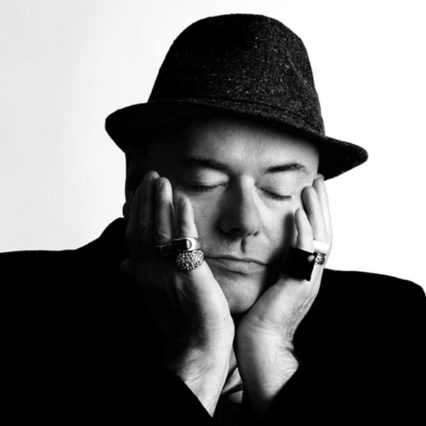
But, as Wall2Wall showed at the end of last month, it’s possible to put on substantial growth; this year it extended from a four-day event to almost a week. Its main venue is the club’s base at the Melville Theatre, where action starts after the opening festival dinner at the Angel Hotel on the Thursday night. For 2019, it began on Monday at a new venue at the King’s Head Hotel with the first of three Blues gigs on successive evenings, starting with the John-Paul Gard Trio, with JPG at the organ, Mike Cypher at the drums and the super-relaxed Chris Cobbson on guitar. Who should turn up (not much of a surprise to the musicians but nevertheless unannounced) but the singer-saxophonist Kim Cypher, Mike’s wife, who played a Cobbson original and sang and played in a tribute to James Brown. More about the two other Blues sessions later.
The dinner always includes a guest performer. Last year it was the singer Becki Biggins, supported by a band that included pianist Guy Shotton, bassist Nick Kaçal and drummer Alex Goodyear. Each member of the band returned to the festival this year in more elaborate garb. Goodyear, a glittering ex-alumnus of the Royal Welsh College of Music and Drama in Cardiff, brought along his Bop Septet, composed mainly of recent college confrères. As an arranger, Goodyear’s efforts, like his exertions at the kit, were on the nail. His band explored the music of US saxophonist Wayne Shorter in a format inspired by Art Blakey’s Jazz Messengers. The long and integrated final medley was a triumph, and the band included that rarest of rarities, the makings of an original pianist in Michael Blanchfield. The two ‘seniors’ in the band, trombonist Gareth Roberts and bassist Ashley John Long, were joined by trumpeter Thom Voyce (doubling flugelhorn), tenor-saxist Daniel Newberry, and alto-saxist Coren Sithers. Goodyear, an inventive goader, kept the furnace charged. (Long, by the way, a South Wales fixture, is simply one of the best double-bass players in Europe in the Scott LaFaro tradition, and his interests are not confined to jazz. He’s been short-listed to represent Wales at the International Society of Contemporary Music’s World Music Days in New Zealand next year.)
Shotton appeared on the final night with vocalist-violinist Claire Victoria as the festival returned to the King’s Head. Her songs, replete with wit, warmth, sophistication, and musicality, included tunes such as ‘Undecided’, ‘I Got It Bad And That Ain’t Good’, ‘La Vie En Rose’, ‘East Of The Sun’, ‘West Of The Moon’, and ‘Honeysuckle Rose’.
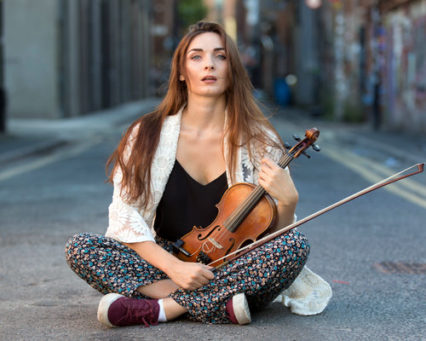
But things were not as they appeared – or they were, but there was more. Claire Victoria is aka Claire Victoria Roberts, one of Wales’s rising contemporary composers, though you wouldn’t have known, because she made no reference to it, preferring the alternative guise of jazz-cabaret entertainer as evidence, if we needed it, of supreme catholicity of taste and interests. Nick Kaçal appeared with his Guerillasound Quartet of himself, Goodyear, violinist Richard Jones (more Welsh connections) and the stupendous Swiss guitarist Nicolas Meier. On paper it might have looked unpromising but it was a festival highlight, essaying lamentation (a Kaçal original called ‘Absent Not Gone’) as well as some late Meier shredding and lots more. Vocalist Sarah Meek joined the band with two beautifully laconic-ironic charts, her version of ‘I’m Confessin” transforming its honeyed sentiment into something more bitter. There are always several ways of interpreting a song. Originality and interplay were paramount, the two amped melodic instruments up front giving incisive bite within a self-imposed restraint.
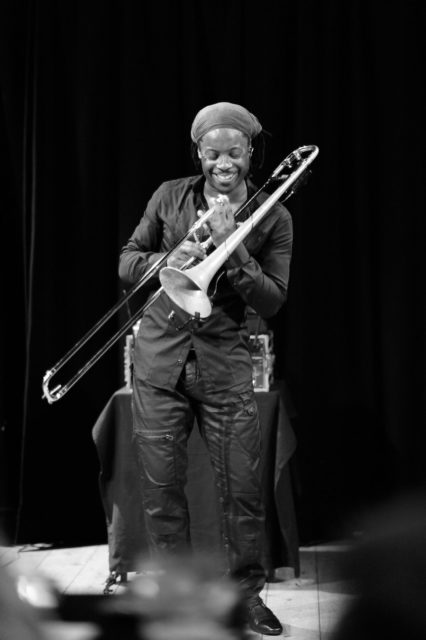
In another theoretically interesting alliance, leading UK trombonist Dennis Rollins fulfilled a long-held wish to appear with Chube, the Welsh jazz-rock trio led by harpist Ben Creighton-Griffiths – and it worked. The harpist doubles keyboards, using them sparingly, and certainly in this case with no intention to limit any notion of the trombone as elephantine in the Melville’s room. Rollins is too much of an intelligent bandsman to have allowed that, but in any case the insistent rock beat of drummer Matt Williams and the like-minded bassist Aeddan Williams subverted any notion of the harp as too ethereal. It worked so well that the four were emboldened to create a version of Symbiosis, one of the most ferocious tests of nerve embarked upon by Rollins’s Velocity Trio, now no more but which has appeared at a BMJ club night. Admittedly, the explosive element was delivered almost as the harp stood by. With typical good grace, Rollins deferred throughout to his colleagues, who obliged with their own accommodating material.
With Rollins, the festival was into its roll-call of UK jazz celebrities, which had unfurled at the festival dinner with the multi-award winning singer Ian Shaw. He delivered over an hour of racy, outré material, which was almost tragi-comic. It was like being sung to by a reprobate uncle with a big heart. He mixed recollection of his Welsh roots with soulful re-mouldings of tunes with which we might have become over-familiar. ‘Girl From Ipanema’ became ‘Boy from Ipanema’ (or from a place denoted by a multi-syllabic Hispanic name that chimed with the Welsh place that begins ‘Llanfair…’ and goes on for ever). Shaw’s racy cabaret attributes were on show. Joni Mitchell’s ‘Big Yellow Taxi’ was de-constructed, and there were moving performances of ‘Life On Mars’ and ‘Where Are We Now?’ from two very different periods in David Bowie’s career. No chart was more heart-rending than ‘My Brother’, a remembrance of the sibling who died at six months before Shaw was born.
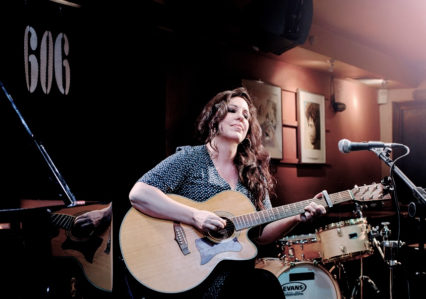
As a celebrity of the moment, singer Sarah Gillespie‘s appearance on Saturday night couldn’t have been bettered. She chose the festival for the Wales launch of her much-applauded new album, Wishbones, performing from it with a top-notch sextet that included leading trumpeter Nick Smart and guitarist Chris Montague. She was in gutsy, streetwise form. The foot-stomping, feisty, British-American songster is difficult to categorise, especially in strict jazz terms. Here, one was reminded of a pluckier, more edgy Bob Dylan and the Robertson band, combined with a more robust version of Janis Joplin. At one stage she good-naturedly curtailed an intro by pianist Tom Cawley for being ‘too jazzy’. These days, singers who hover above the blues-contemporary folk-rockabilly tradition are herded, or get themselves herded, into the jazz fold. She was political (‘The Ballad Of Standing Rock’, about a morally-challenged worker on a Dakota pipeline snaking through a Native American reservation), and witty in her hilarious collage of worthy emails from the nursery about her daughter (‘Susannah Threw A Helicopter’). And lots more, in which words were as important as their jog-a-long instrumental settings. ‘Glory Days’, a ‘love letter’ to her mother seemed strained by the angst of not expressing the sentiments face-to-face, and was typical of her range of raw, fibrous material.
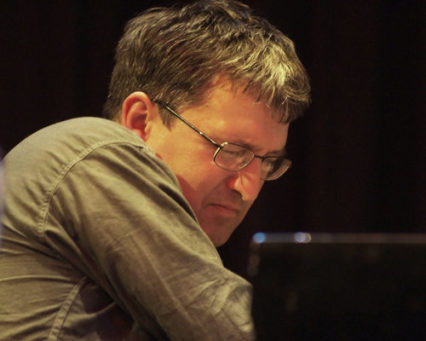
Gustavo Firmenich’s Tango Jazz Quartet excelled at fusion of a sort that was what Jelly Roll Morton probably meant when he said jazz wasn’t jazz unless it had a ‘Spanish tinge’. TJQ drew on South American music’s bounty. Firmenich (clarinet and tenor sax) and the discerning Horacio Acosta on piano led the exploration, ever reminded of its rhythmic purpose by colleagues Frederico Hilal on bass and Alejandro Beelman at the drums. The lads don’t speak much English even though they tour Europe annually, but their music spoke for them, played with the skill that obscures its emotional and rhythmic complexity. John Law’s Re-Creations re-created his re-creations creatively, though one wonders if jazz is not already the act of making something new and Law’s ‘guess the tune’ element – which he would no doubt eschew – a tad fatuous. One of Satie’s Gymnopodies (easy) and ‘Let’s Face The Music And Dance’ (fairly easy) suggested that Law-arranged tunes are launch platforms rather than enhancements. Miles Davis’s ‘So What’ was presented as an inverted treatment and no worse for that. So, it’s interesting. Attention in the Law group centred on the leader himself at the festival’s much-bashed piano and as much electronic gear as was considered appropriate. There were long keyboard intros and much fiddling with tempi, not least in the final ‘Obla di Obla Da’, not so much Beatlemania as Beatlemanic, and with some free doodling between saxophonist Josh Schofield and drummer Billy Weir, supported by bassist James Agg. But the way the group dealt with ‘Summertime’ showed how Law’s bold arrangements and internal machinery could be compelling. The elegant Weir often caught the ear and was echoed later by Alex Goodyear.
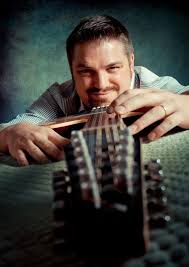
Bristol singer-songwriter Lady Nade paid tribute to Blues women in tunes ranging from the earthy to the wise, accompanied on electric guitar by the excellent Holly Carter. Nade herself also played acoustic guitar but it was Carter’s low-down decorations that supplied authenticity. There were tributes to Sister Rosetta Tharpe (‘Trouble In Mind’), Nina Simone, Billie Holiday (‘Billie’s Blues’) and many others. She made time too for original material, eccentrically based on her creativity in the kitchen. Her singing is so controlled and pure of tone that one forgave the subsumption of her material’s varying emotional registers under one voicing. On the third night at the King’s Head, the hobo-bluegrass of Sicknote Steve’s Trio reminded us of jazz’s fundamentals, demonstrating that being enflamed and rudimentary is as tricky as being sophisticated and modern. This is what a jazz festival should be about: an exploration of different forms of the music and an insistence on their equivalence. Jazz hasn’t evolved; it’s changed.
Wall2Wall’s single inter-gig appearance in the Melville’s bar was by BMJ’s Debs Hancock, an hour-long and captivating demonstration of the quiet art of jazz singing, with guitarist Dave Hobbs. The packed audience listened, liked, and applauded. It’s not easy to retain the attention of an audience emerging from one event or waiting for another – or both – and convince it that it is benefiting from a musical continuity. The final day saw Bristol’s Renewal Choir, directed by Kim Samuels, gospelling its audience after conducting a festival workshop. Gospel singing, as much as Sicknote Steve’s blues-folk, is as integral to jazz as any amount of free improvisation or frantic Bebop. The audience was invited to join in but only that part of it which had attended the workshop convinced us, saying much for Ms Samuel’s tuition. There were workshops too by TJQ (the intricacies of jazz tango), Swansea pianist Dave Jones (improvisation), Dennis Rollins (funky youth band tropes), and Naomi Rae (jazz for the very young). Abergavenny Film Society joined the festival in presenting Born To Be Blue, the bio-drama feature film about trumpeter Chet Baker, played by Ethan Hawke. Not so much a bundle of laughs as a basketful of woes.
Nigel Jarrett is a former daily-newspaperman and a double prizewinner: the Rhys Davies Award for short fiction and the inaugural Templar Shorts award. His first story collection, Funderland, was widely praised. His début poetry collection, Miners At The Quarry Pool, was described by Agenda poetry magazine as ‘a virtuoso performance’. Jarrett’s first novel, Slowly Burning was published in 2016, as was his second story collection, Who Killed Emil Kreisler? Templar has just published his story pamphlet A Gloucester Trilogy. His work is included in the Library of Wales’s anthology of 20th– and 21st– century short fiction. He lives in Monmouthshire.


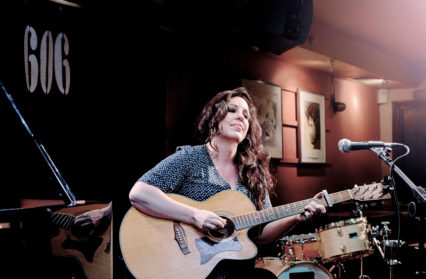
 Enjoyed this article? Support our writers directly by buying them a coffee and clicking this link.
Enjoyed this article? Support our writers directly by buying them a coffee and clicking this link.







